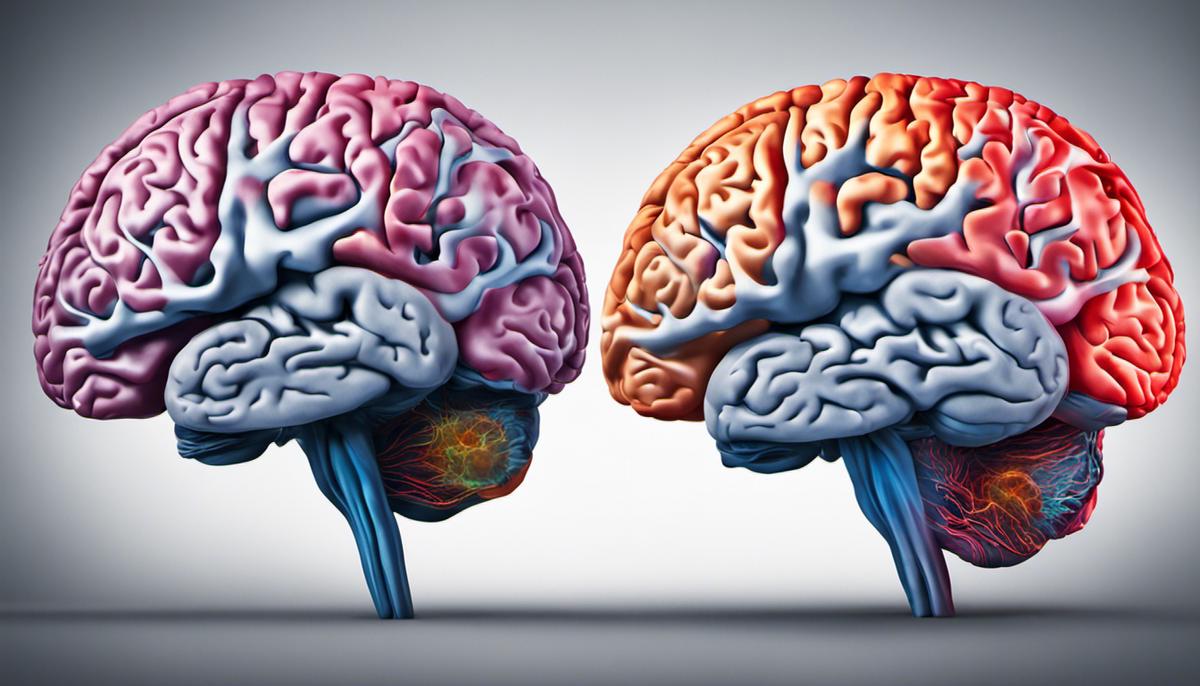In the vast spectrum of human health, one area that often takes center-stage is cognitive function, with a predominant focus on the debilitating neurological condition known as dementia. Despite its widespread nature and potentially profound impact, understanding the intricacies of this disorder – its causes, progression, and prevention methods – remains an uphill task for many. At the crossroads of this quest for understanding lies an essential but often overlooked area – sleep. Seen as far more than a restorative biological process, sleep holds a pivotal role in the overall health and, specifically, the cognitive function of the human brain. This discourse aims to throw light on the complex relationship between dementia and sleep, probing scientific studies, groundbreaking research, and empirical evidence to highlight the preventative potential of sufficient, quality sleep against dementia.
Table of Contents
Understanding Dementia
Delving Into Dementia: Understanding the Impact on Cognitive Function
Dementia, a term frequently heard yet often misunderstood, is a complex medical condition that has significant implications for cognitive function. Contrary to some beliefs, it is not a specific disease, but rather a collective term used to describe a spectrum of symptoms connected with cognitive impairment.
Dementia primarily affects elderly individuals, although numerous cases prove it can occur at a relatively younger age under certain circumstances. The transformations it imposes on an individual’s cognitive capabilities are as varied as they are profound, encompassing substantial memory loss, difficulties in thinking and problem-solving, and alterations in perceptual abilities.
The cognitive deterioration in dementia emanates from progressive neural damage, which essentially hampers the traditional firing of neurons that facilitate cognitive functions. Various forms of dementia are distinguished by the unique patterns of neuronal damage and atrophy in distinct regions of the brain.
Alzheimer’s disease, the most common form of dementia, occurs as a result of the accumulation of beta-amyloid plaques and tau tangles, leading to neural death in the hippocampus, progressively spreading to the cerebral cortex. This pathology manifests primarily in memory impairment, but as the condition advances, other cognitive domains such as language and executive functions are increasingly affected.
Vascular dementia, on the other hand, is typically associated with cerebrovascular or cardiovascular incidents, such as stroke. The infarcts or vascular lesions disrupt blood flow to brain tissue, damaging or killing neurons and resulting in cognitive deficits. It can manifest in memory difficulties, slowed thinking, and problems maintaining attention, largely contingent on the affected brain areas.
Often ignored, yet equally debilitating, are the psychological changes accompanying dementia. These include emotional instability, depression, and a loss of motivation or interest in previously enjoyed activities.
The understanding of dementia has evolved significantly over the years, with sophisticated neuroimaging technologies and in-depth pathological studies shedding light on the intricate processes at play. Yet, dementia presents a compelling and intricate challenge to neuroscientists and clinicians alike. Fundamentally, understanding dementia involves more than mere cognitive deterioration. It signifies the unraveling of an individual’s mental abilities, their autonomy, and often their personality and character.
Indeed, while the narrative of dementia is predominantly steeped in losses, the quest for gaining a deeper understanding and formulating more effective treatments testifies to the indomitable spirit of medical and scientific exploration. Integrative research efforts place special emphasis and hope in early detection and interventions that can slow or potentially halt the progression, making dementia not merely a story of cognitive decline, but a testament to relentless human innovation and resilience.

The Science of Sleep
The Role of Sleep within the Human Body and its Paramount Importance
Delving into the mysteries of sleep, one uncovers a domain of physiological processing and systemic repair that serves as the underpinning of our overall health and well-being. Indeed, many variables intersect to regulate both our need for sleep and our response to its deprivation, suggesting a functionally complex relationship.
Explorations at the molecular and cellular level highlight sleep as a multifarious process rather than an indolent state. The sleep-wake cycle – often referred to as the circadian rhythm – is regulated by the hypothalamus, an intricate region of the brain. Utilizing external cues such as light and temperature, this biological “clock” synchronizes behavioral and physiological processes, coordinating the sleep-wake cycle with the body’s internal environment and the outside world.
At the behest of our circadian rhythm, sleep consolidates memory, renews our neurological functionality, and reinstates metabolic homeostasis. While sleeping, the brain orchestrates a cerebral symphony, repackaging and strengthening the day’s experiences into long-term memory – a phenomenon referred to as memory consolidation. Similarly, the period of rest recalibrates emotional resilience, sharpens cognitive functioning, and replenishes the brain’s energy reserves, essentially re-establishing the platform for neurocognitive performance.
Metabolic regulation during sleep is equally essential as energy resources are restocked, hormones are rebalanced, and oxidative stress is mitigated. The secretion of growth hormone, pivotal in tissue repair and immune function, peaks during deep sleep, paralleling the ebb and flow of our circadian rhythm. Contrarily, periods of sleep deprivation can lead to the dysregulation of such hormones, contributing to the etiology of obesity, diabetes, and cardiovascular disease in the long term.
From a cellular perspective, sleep delivers a time of decreased metabolic demand, enabling the restoration of the body’s micro-environment. The glymphatic system, a brain-wide pathway facililitating waste clearance, appears to augment its function during sleep, removing neurotoxic waste that accumulates in the awake central nervous system. This reveals the potential link between prolonged sleep deprivation and the neurometabolic disorders such as Alzheimer’s, reinforcing the imperativeness of sleep in maintaining cognitive health.
In conjunction with this, current research suggests that chronic sleep deprivation might contribute to the onset or worsening of dementia, relevant in light of the present discussion. The pathogenic contribution of sleep disturbances to neurodegenerative diseases speaks to the vital role sleep plays in neural integrity. Thus, the optimal understanding of dementia necessitates an in-depth comprehension of the critical role of sleep in cognitive function and, indeed, its overall bearing on human health.
Indeed, the importance of a wholesome, undisturbed sleep is paramount, underscoring its role far beyond the refractory period it is often reduced to. Recognizing the impressively wide-ranging implications of sleep lends a newfound appreciation for it and pushes to the forefront the necessity of prioritizing adequate rest in our daily regimens. Embracing this knowledge arms us with yet another tool in striving for a healthier, more cognitive lifestyle.

Linking Sleep and Dementia
The well-documented interplay between sleep and cognitive function implicates the circadian rhythm, our internal molecular clock, governed by the hypothalamus. This rhythm regulates the delicate balance between our wake and sleep cycles. A deep dive into this cycle reveals not just mere rest, but a complex set of restoration processes with profound implications for cognitive health.
Memory consolidation is one such critical process executed during sleep. Our minds, active even in slumber, are busy shifting acquired information from short-term to long-term storage, effectively strengthening neural connections. The deficit induced by sleep deprivation can lead to impaired learning, memory functions, and hindered cognitive abilities, manifesting as forgetfulness and difficulty staying focused.
Concurrent with memory consolidation, sleep facilitates the restoration of neurological functionality, helping to reset synaptic strength, and allowing for efficient signaling between neurons. Perturbed sleep patterns can thus translate to weakened neuronal connections, a factor that contributes significantly to cognitive decline associated with several forms of dementia.
Metabolic regulation is another crucial function of sleep. Sleep assists in the regulation of various hormones that govern appetite, stress, growth, and—as recent research suggests—neurological health. Disrupting this balance through sleep deprivation can exacerbate physiological stress responses, promote unhealthy feeding habits, and even contribute to the development of neurometabolic disorders, which are established contributors to dementia.
Fundamental to the beneficial properties of sleep is a process known as cellular restoration. During sleep, the body cells undergo repair, making new proteins and discarding waste. Within the nervous system, this repair involves the unique glymphatic system, working ten times more efficiently during sleep to drastically expel neuronal waste, including the beta-amyloid and tau proteins that are notably implicated in Alzheimer’s disease. Remarkably, sleep deprivation hinders this waste clearance, allowing toxic metabolites to accumulate, potentially paving the path to dementia.
Recent investigations into the chronic effects of sleep deprivation have provided insightful connections with the onset of dementia and neurodegenerative diseases. In a seemingly vicious cycle, sleep disturbances and insomnia common in dementia patients may worsen neurodegenerative pathological features, which in turn disrupt sleep patterns further.
This intricate dance underscores the critical role of sleep in cognitive function and overall human health. Consequently, the need to prioritize adequate rest forms the foundation of maintaining healthier lifestyles. As the knowledge of this sleep-dementia relationship unfolds, the potential interventions targeting improved sleep hygiene could provide promising avenues to delay or halt the progression of these debilitating disorders.

Sleep As a Preventive Measure
As highlighted previously, dementia represents a complex array of cognitive impairments instigated by neural harm, such as beta-amyloid plaques in Alzheimer’s disease or cardiovascular incidents contributing to vascular dementia. Through relentless investigation, the scientific community forges ahead, unearthing ever deeper insight into the distinct patterns of neural damage and atrophy, and their far-reaching implications on an individual’s mental capacity, autonomy, and personality. The crux of these endeavours remains the interception of dementia in its incipient stages, enabling interventions to decelerate or entirely halt progression.
A relatively untapped area of research that has started gaining attention pertains to the possible preventative role that adequate sleep could play against this neurological ailment. Indeed, one must look towards our most profound physiological sleep characteristics to divine whether such a hypothesis holds merit.
Firstly, the existence of the circadian rhythm, a biological phenomenon under the aegis of our hypothalamus, illustrates the vast importance of sleep on a molecular level. It tunes our biological clock, orchestrating our daily sleep-wake cycles, metabo-regulation and hormone balance.
Particularly significant to the topic under discussion is the role of sleep in memory consolidation. It is during these restful periods that the brain fortifies new memories, embedding and intertwining them within the pre-existing neural network. Sleep deprivation impedes this process, compromising cognitive function and potentially causing long-term neural damage.
Evidence suggests that sleep is also essential for restoring neurological functionality, strengthening synapses through cyclic oscillations between periods of activity and rest. Coupling with this, adequate sleep facilitates important metabolic regulation processes, striking a necessary balance that helps maintain brain health.
Moreover, sleep is a fundamental player in the cellular restoration process. The glymphatic system, rather like our nervous system’s housekeeping service, springs into high gear during sleep, flushing out nervous system waste. This includes toxic metabolites linked with neurodegenerative diseases. Sleep deprivation may, therefore, leave this neural rubbish to accumulate, leading to cellular atrophy and potentially heightening the risk of dementia.
Emerging evidence points to an intricate relationship between sleep disturbances and neurodegenerative diseases, with the damage seeming to be bidirectional. Sleep disorders often accompany neurodegenerative diseases, that in turn exacerbate sleep disruptions – creating a vicious circle that results in cognitive decline.
The road towards unravelling dementia is thorny and fraught with complexities. Nonetheless, the significance of adequate sleep in maintaining cognitive function and health, has been underscored. Better understanding of sleep’s many roles may offer further keys to delaying or preventing the progression of dementia and neurodegenerative disorders.
The take-home message for public health is clear: A good night’s sleep should not be seen as an indulgence or wasted time. It’s a crucial investment in future cognitive resilience. By re-evaluating our cultural perception and personal prioritization of sleep, we may find ourselves holding a proactive tool for bolstering cognitive health and forestalling the onset of dementia. Offering practical solutions and interventions to ensure restful nights may then be one of our most effective strategies towards achieving these ends.

While the definitive cure and prevention for dementia continues to be a work in progress, understanding and acknowledging the vital role of sleep can provide us with one avenue for safeguarding against the disorder. The cumulative evidence underscores the significance of sleep in maintaining adequate brain health, particularly in relation to the clearance of neurotoxic waste and memory consolidation. Embracing adequate and healthy sleep habits could wield the double-edged sword of enhancing general health while potentially reducing the risk of dementia. In moving forward, it is crucial that we never underestimate the restorative power of a good night’s sleep and consider it as a potential ally in our ongoing battle against cognitive decline and dementia.

Rajan Moonbeam is a dedicated health writer with a Master of Public Health (MPH) degree. Specializing in holistic wellness and preventive care, Rajan combines scientific research with natural approaches to health, offering readers practical advice on living their healthiest life. His work is a beacon for those seeking to navigate the path to well-being with integrity and balance.

